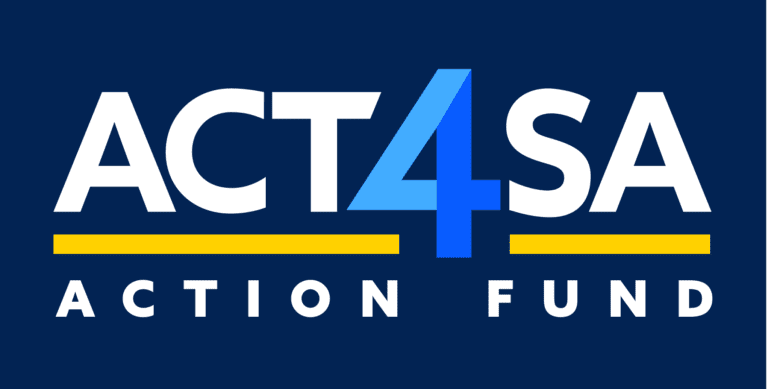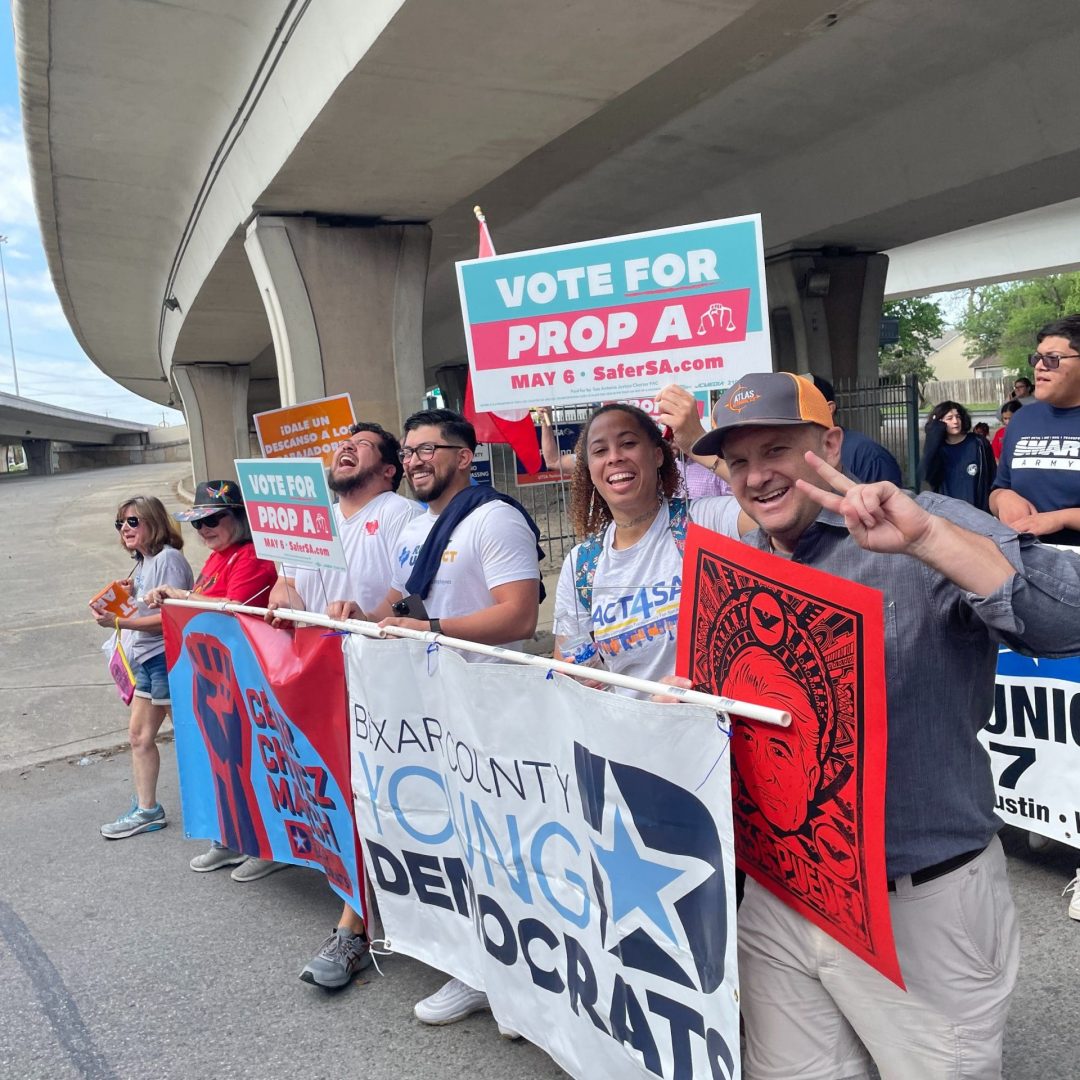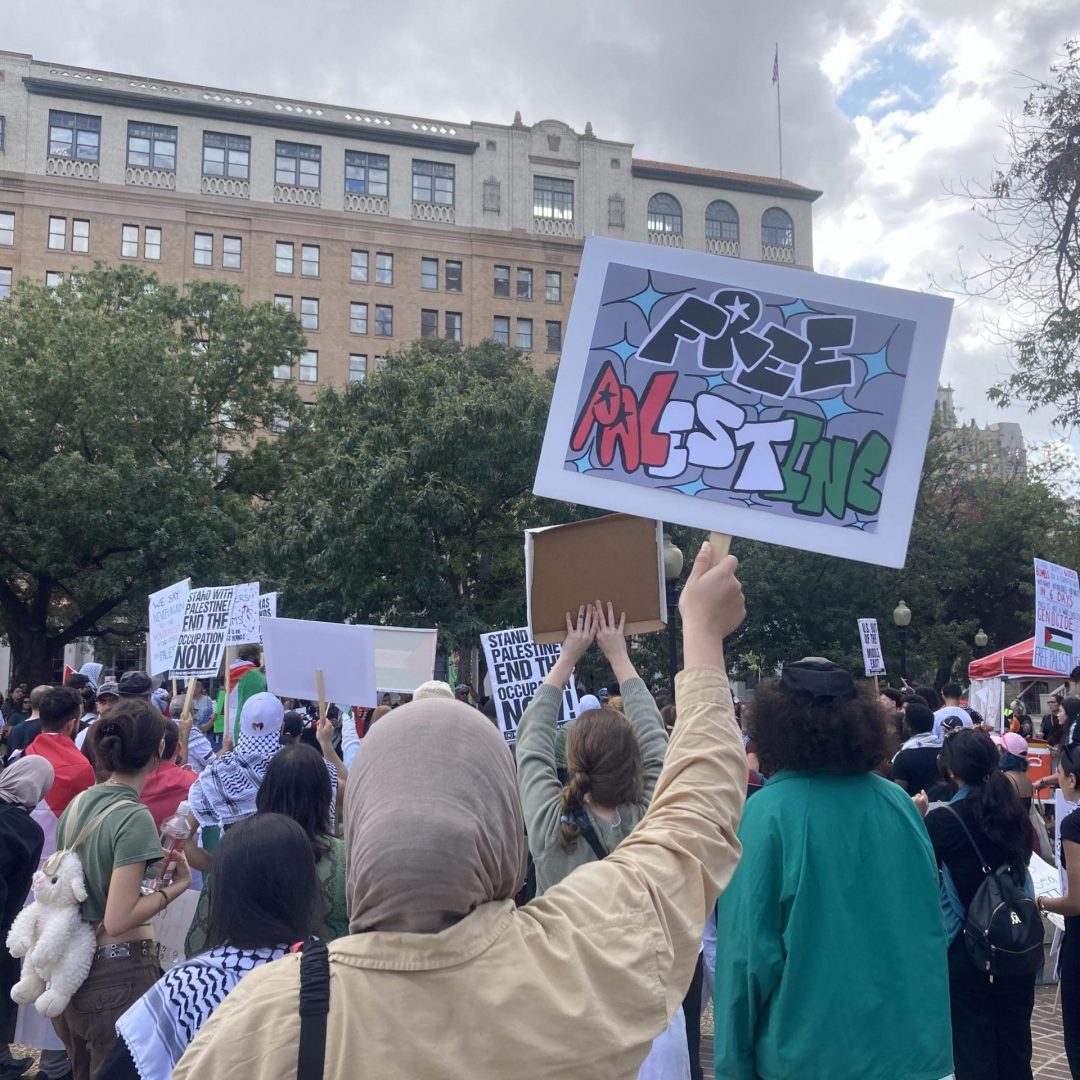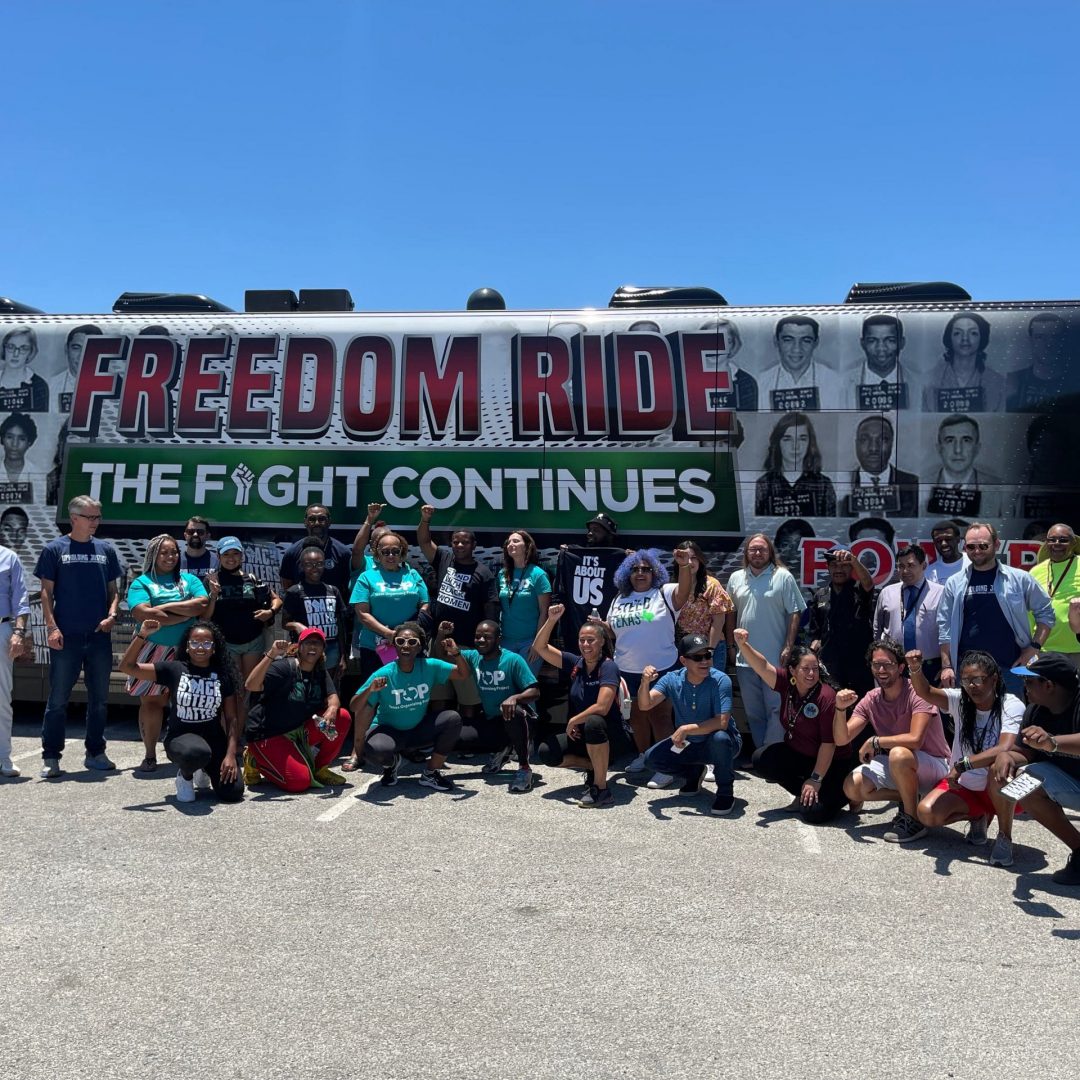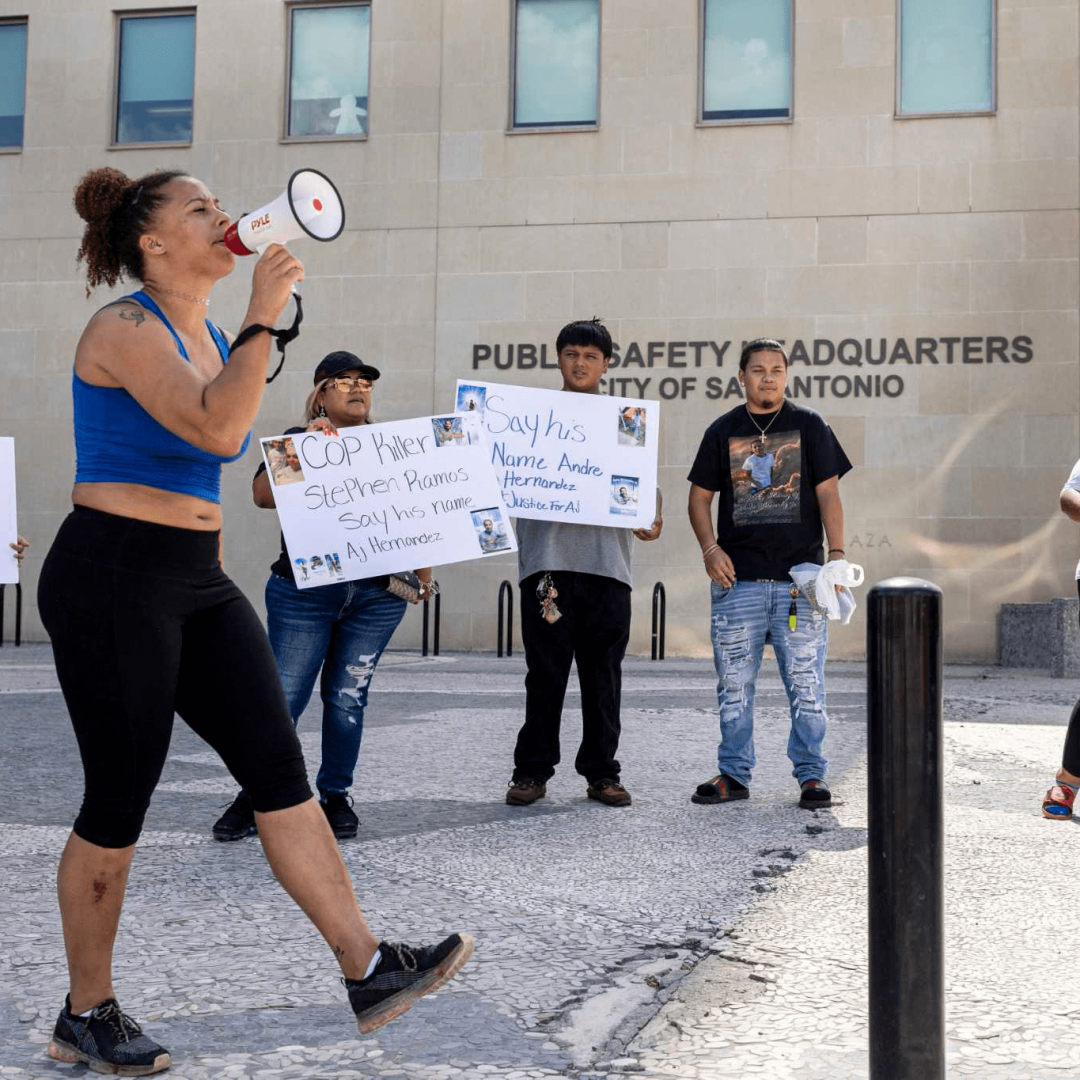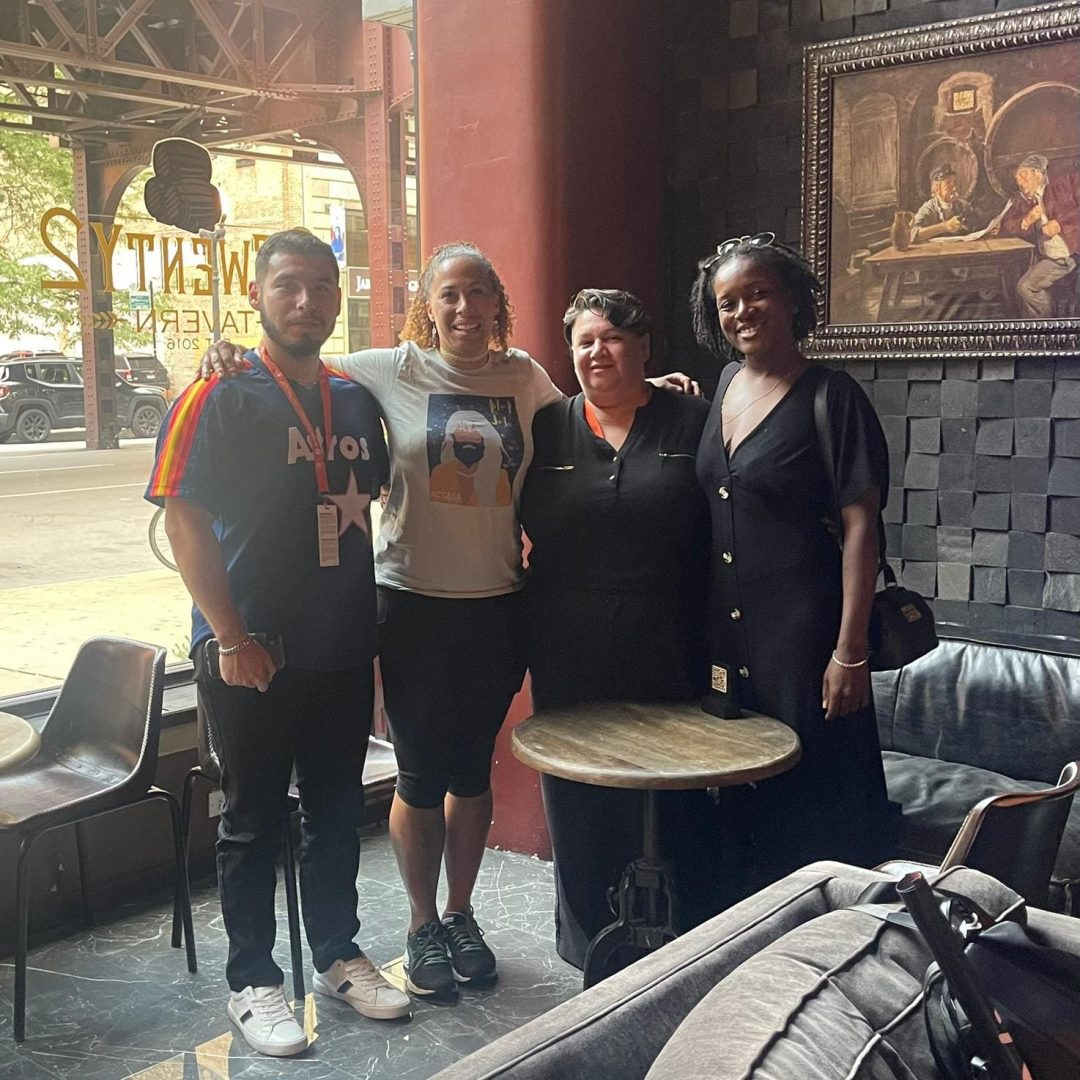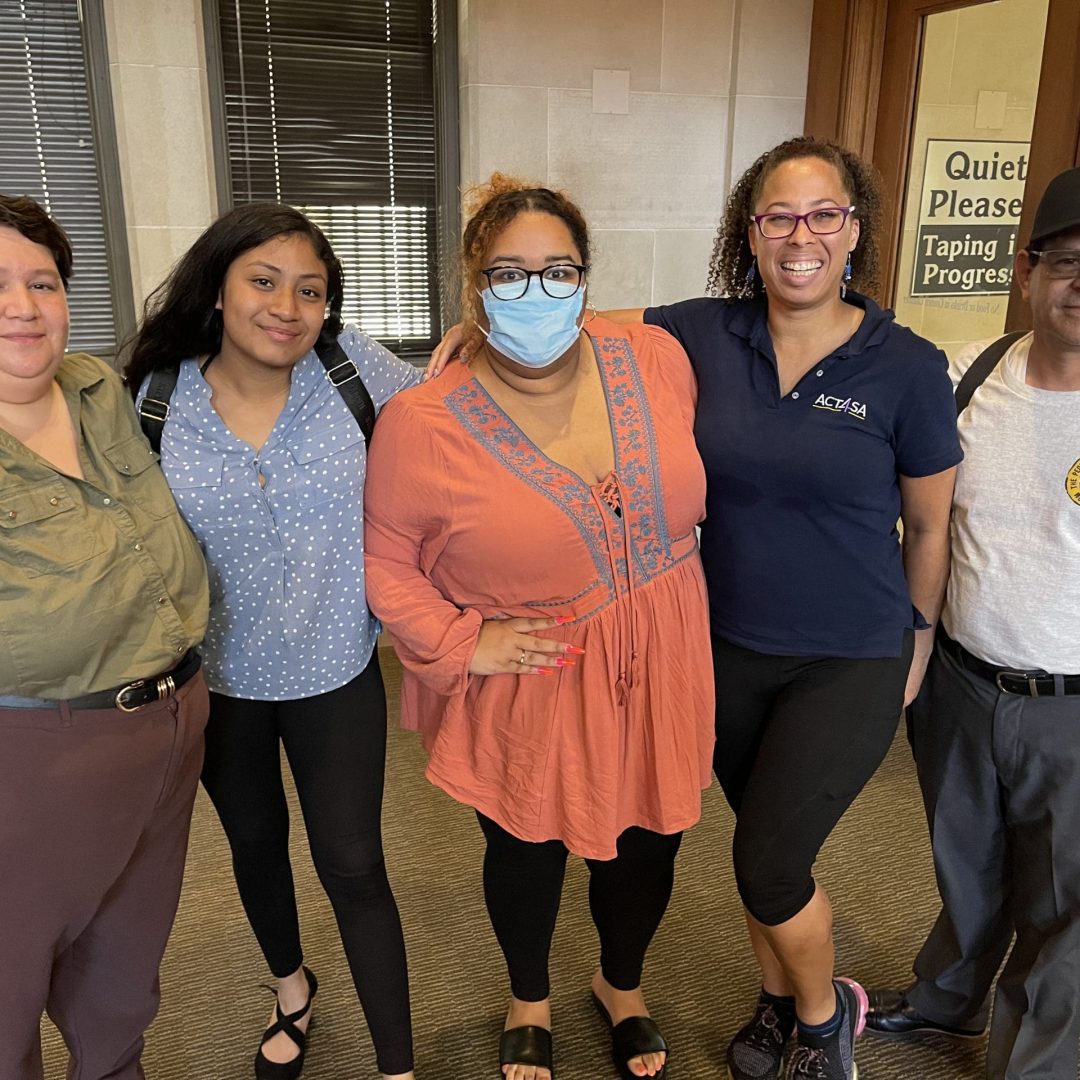2025 Pambatasang priyoridad
Mag-click sa mga numero ng bill upang tingnan ang buong mga bill
suporta
“"Nauugnay sa mga kahihinatnan ng kriminal at paglilisensya ng ilang mga paglabag na may kaugnayan sa pagmamay-ari ng marihuana, ilang partikular na tetrahydrocannabinol, ilang partikular na sintetikong cannabinoid, at mga drug paraphernalia; nagpapataw ng bayad."”
Gagawin ng panukalang batas na ito ang simpleng pagmamay-ari ng hanggang isang onsa ng bulaklak ng cannabis bilang isang Class C misdemeanor - tahasang inaalis ang panganib ng pag-aresto at pagkakulong, sa halip ay ididirekta ang opisyal na maglabas ng pagsipi sa halip. Para sa konteksto, ang mga misdemeanors ng Class C ay mapaparusahan ng multang hanggang $500, na walang posibilidad na makulong. Ang kasalukuyang simpleng pagmamay-ari ng cannabis ay isang Class B misdemeanor, na may mga parusang hanggang 180 araw na pagkakulong at $2,000 na multa. Ang mga pag-aresto sa Cannabis ay negatibong nakakaapekto sa sistema ng hukuman at nakakadiskaril sa buhay ng mapayapang mga mamimili ng cannabis.
“"Nauugnay sa temperatura kung saan pinapanatili ang isang pasilidad na pinapatakbo ng Texas Department of Criminal Justice."”
Mangangailangan ito na ang mga correctional facility ay gumawa ng mga hakbang upang mag-install ng mga HVAC system upang ang temperatura ay hindi bumaba sa ibaba 65 degrees Fahrenheit o tumaas sa itaas ng 85 degrees Fahrenheit sa Setyembre 2026. Sa kasalukuyan ay walang patakaran tungkol sa pagpapanatili ng mga temperatura sa correctional facility- ibig sabihin ay walang AC sa tag-araw o init sa taglamig. Sa pagtaas ng matinding temperatura dahil sa pagbabago ng klima, mapanganib ito, kahit na nakamamatay para sa ating mga nakakulong sa buong Texas. Ito ay isyu ng karapatang pantao, punto, blangko, tuldok!
“"Nauugnay sa temperatura kung saan pinapanatili ang isang pasilidad na pinapatakbo ng Texas Department of Criminal Justice."”
Ito ang House bill na kapareho ng SB 169. Ito ay madalas na isang paraan kung sakaling ang parehong panukalang batas ay hindi makalabas sa isang braso sa lehislatura, kung gayon ito ay may pagkakataon na mailabas ito sa pangalawang pagkakataon sa ilalim ng ibang numero ng panukalang batas. Kung pumasa, kakailanganin nito na ang mga correctional facility ay gumawa ng mga hakbang upang mag-install ng mga HVAC system para hindi bumaba ang temperatura sa ibaba 65 degrees Fahrenheit o tumaas sa itaas ng 85 degrees Fahrenheit bago ang Setyembre 2026.
LABAN
“Nauugnay sa awtoridad ng namumunong katawan ng isang home-rule municipality na magsumite ng iminungkahing charter amendment sa mga botante para sa pag-apruba kung ang aplikasyon ng mga probisyon ng amendment ay labag sa batas ng estado.”
Ang panukalang batas na ito ay magbibigay-daan sa mga opisyal ng lungsod na tanggihan ang isang charter amendment initiative mula sa paglalagay sa balota kahit na ito ay nakatanggap ng sapat na mga lagda ng suporta mula sa mga botante ng lungsod at hinihimok ang karapatan ng isang home-rule city na pamahalaan ang sarili. Halimbawa, ang pagpasa sa dekriminalisasyon o pag-alis sa priyoridad ng mga pag-aresto para sa mababang antas ng pagmamay-ari ng marijuana, na sinuportahan na ng isang hukom bilang legal na gawin para sa mga lungsod na pinamunuan ng tahanan sa korte.
“Nauugnay sa awtoridad ng namumunong katawan ng isang home-rule municipality na magsumite ng iminungkahing charter amendment sa mga botante para sa pag-apruba kung ang aplikasyon ng mga probisyon ng amendment ay labag sa batas ng estado.”
Ang panukalang batas na ito ay naghihigpit sa pagpapalaya sa piyansa kahit para sa ilang mga misdemeanors, na nagdaragdag sa bilang ng mga taong nakulong bago ang paglilitis. Ipinagbabawal din nito ang mga personal na bono sa mas maraming kaso, na nangangailangan ng mga cash bond. Ito ay isang direktang pag-atake sa hustisya bago ang paglilitis, pagpapalawak ng mapaminsalang paggamit ng piyansa sa pera at pre-trial na pagkulong, na labis na nakakasakit sa pang-araw-araw na uring manggagawang Texan na hindi kayang bilhin ang kanilang kalayaan.
Ang kasalukuyang batas ay nagpapahintulot sa mga mahistrado na magtakda ng mga halaga ng piyansa para sa mga taong inakusahan ng isang pagkakasala. Ipagbabawal ng batas na ito ang mga mahistrado sa ilang mga county na magtakda ng piyansa para sa sinumang kinasuhan ng isa sa mga pagkakasala na nakalista sa panukalang batas, na nangangailangan ng mga hukom ng distrito na gampanan ang tungkuling iyon. Ang mga hukom ng distrito ay karaniwang nagpapatakbo ng normal na 9-5, MF na oras ng negosyo, habang ang mga mahistrado ay karaniwang gumagana 24/7. Maraming tao ang mauupo sa kulungan ng mahabang panahon bago makapagpiyansa ang isang hukom ng distrito.
Sa wakas, ang panukalang batas na ito ay nagbibigay sa mga tagausig ng unilateral na kapangyarihan upang hamunin ang desisyon ng piyansa ng isang hukom, na nangangailangan na ang isang tao ay makulong nang mas matagal habang nakabinbin ang isang desisyon sa apela. Isa lamang na paraan upang mapanatili nang mas matagal ang uring manggagawa sa ating mga kulungan na masikip na, na ginugulo ang kanilang buhay at parusahan ang mga tao dahil sa hindi nila kayang magbayad ng mas mataas na piyansa, kahit na para sa mga maliliit na pagkakasala.
“"Nauugnay sa regulasyon ng mga consumale na produkto ng abaka at ang mga cannabinoid na nagmula sa abaka na nasa mga produktong iyon; nangangailangan ng pagpaparehistro; pagpataw ng mga bayarin; paglikha ng mga kriminal na pagkakasala; pagbibigay ng administratibong parusa."”
Ang Senate Bill 3 ay naglalayon na makabuluhang paghigpitan ang legal na merkado para sa mga produkto ng abaka sa pamamagitan ng pagbabawal sa THC at halos lahat ng iba pang cannabinoids. Kung maipapasa, papayagan ng panukalang batas ang mga consumable na produkto ng abaka na isama lamang ang cannabidiol (CBD) o cannabigerol (CBG). Alam namin na maraming tao ang umaasa sa THC para sa mga panggamot na dahilan ng lahat ng uri kung pisikal na sakit, kalusugan ng isip, at higit pa. Maraming mga lokal na may-ari ng negosyo ang umaasa sa pagbebenta ng mga cannabinoids para kumita rin sa panahon kung saan marami ang nagpupumilit na mabuhay. Ang mga Cannabinoid ay palaging may kakayahang palakasin ang ating lokal at estadong ekonomiya.
Ang mga makatwirang regulasyon, tulad ng mga paghihigpit sa edad, malinaw na pag-label, at mga pamantayan sa pagsubok, ay maaaring matugunan ang mga alalahanin tungkol sa pagbebenta at paggamit ng mga cannabinoid. Dapat bigyan ng kapangyarihan ang Department of State Health Services na ipatupad ang mga panuntunang ito nang epektibo, na tinitiyak ang isang mas ligtas na pamilihan- sa halip na ipagbawal ang mga produktong cannabinoid nang buo. I-regulate ang mga produktong ito, huwag ipagbawal ang mga ito!
"Nauugnay sa ilang partikular na file na pinananatili ng isang ahensyang nagpapatupad ng batas tungkol sa ilang empleyado ng ahensya."
Ipagbabawal ng panukalang batas na ito ang isang ahensyang nagpapatupad ng batas na maglabas ng impormasyong nasa rekord ng trabaho ng isang opisyal/deputy sa ibang ahensya o indibidwal na humihiling ng impormasyong ito. Kabilang dito ang kanilang mga rekord sa pagdidisiplina, ibig sabihin ay hindi na maa-update ang mga proyekto ng transparency gaya ng copthedata.com upang subaybayan at magbigay ng mga talaan ng pagsususpinde ng opisyal at maling pag-uugali sa publiko. Pinopondohan ng ating mga tax dollars ang ating mga ahensyang nagpapatupad ng batas at binabayaran ang mga suweldo ng kanilang mga empleyado- karapat-dapat tayong makapagtanong sa mga rekord ng pagtatrabaho at pagdidisiplina ng pulisya upang malaman kung sino ang nagpapatrolya sa ating mga lansangan!
"Nauugnay sa ilang partikular na file na pinananatili ng isang ahensyang nagpapatupad ng batas tungkol sa ilang empleyado ng ahensya."
Ang kaparehong bayarin sa SB 781 sa Texas House of Representatives. Ito ay madalas na isang paraan kung sakaling ang parehong panukalang batas ay hindi nagtagumpay sa isang braso sa lehislatura, pagkatapos ay mayroon itong pagkakataon na magawa ito sa pangalawang pagkakataon sa ilalim ng ibang numero ng kuwenta.
“"Nauugnay sa mga apela sa serbisyong sibil ng deputy sheriff ng ilang mga aksyon ng departamento ng sheriff."”
Ito ay magpapahintulot sa isang kinatawan na nag-aapela ng suspensiyon ng 3 araw o higit pa, o isang pagwawakas, na dalhin ang apela sa isang tagasuri sa labas ng pagdinig sa halip na ang komisyon ng serbisyo sibil na nakalagay na para sa mga naturang apela. Tandaan na ang malawak na paghuhusga na ibinigay sa mga tagapamagitan sa labas ay ang naging dahilan ng pagkakaroon ng San Antonio Police Department ng isa sa pinakamataas na rate ng muling pag-hire para sa mga natanggal na opisyal sa bansa mula 2017-2021- ang ilan ay muling na-rehire nang maraming beses bago winakasan sa huling pagkakataon.
Sa isang pag-aaral ni Rushin (2021) na sumasaklaw sa 624 arbitrations, ipinakita ng data na binawasan o binawi ng mga arbitrator ang disiplina ng pulis sa 52% ng mga kasong ito. Sa 46% ng mga kaso na kinasasangkutan ng pagwawakas, inutusan ng mga arbitrator ang mga departamento ng pulisya na muling kumuha ng mga dating natanggal na opisyal. Sa karaniwan, binawasan ng mga arbitrator ang haba ng pagsususpinde ng mga opisyal ng humigit-kumulang 49%. Napakaraming suspensyon at pagwawakas na ibinabalik na ang isang hepe ng pulisya, sheriff, at/o civilian review board ay napatunayang makatwiran- na ginagawang mas ligtas ang ating mga lansangan!
“"Nauugnay sa pagiging angkop ng sistema ng serbisyong sibil para sa mga bumbero ng munisipyo at mga opisyal ng pulisya at mga departamento ng sheriff."”
Tatapusin nito ang kakayahan ng mga botante ng lungsod na mag-opt in o lumabas sa Kabanata 143 para sa mga bumbero ng munisipyo at/o mga opisyal ng pulisya at Kabanata 158 para sa mga departamento ng sheriff ng county. Ito ay magiging awtomatiko para sa mga munisipalidad o county na may partikular na laki ng populasyon, sa halip na payagan ang mga botante na magpasya kung paano nila gustong pamahalaan at maayos ang kanilang lokal na pagpapatupad ng batas, kabilang ang mga hakbang sa pagdidisiplina para sa masasamang opisyal. Inaalis nito ang lokal na kontrol sa sarili nating lokal na tagapagpatupad ng batas, na pinopondohan natin sa pamamagitan ng ating mga dolyar sa buwis.
Kasama sa Kabanata 143 ang maraming butas sa pagdidisiplina na na-highlight bilang may problema at direktang responsable para sa ilang mga natanggal o nasuspinde na opisyal na muling tinanggap o binabawasan ang kanilang pagsususpinde pagkatapos ng malinaw, mapanganib na mga aksyon at mga paglabag sa patakaran ng departamento. Alamin ang higit pa tungkol sa mga mapanganib na hadlang na ito sa: https://fixsapd.org/about/10-problems/
Dapat pansinin na may ilang iba't ibang Loval Government Code Chapters ang mga bumbero at pulis sa lungsod ay maaaring makipag-ayos ng mga kabanata sa ilalim na hindi kasama ang mga naturang butas sa pagdidisiplina, at nagbibigay ng higit na boses sa mga miyembro ng komunidad at mga nagbabayad ng buwis sa proseso- tulad ng mga Kabanata 142 sa San Marcos o Kabanata 147 sa Dallas.
“"Nauugnay sa proteksyon ng mga karapatan ng hindi pa isinisilang na bata at kriminal na pananagutan at katwiran para sa ipinagbabawal na pag-uugali."”
Ang panukalang batas na ito ay naglalayong baguhin ang ilang aspeto ng batas ng estado, kabilang ang pagbabago ng legal na kahulugan ng "indibidwal" upang isama ang isang fetus mula sa pagpapabunga hanggang sa kapanganakan. Ito ay higit pang nagsususog sa mga seksyon ng Penal Code at Civil Practice and Remedies Code upang matiyak na ang mga batas ng kriminal at sibil ay tinatrato ang pinsala sa isang hindi pa isinisilang na bata na katulad ng pinsala sa isang ipinanganak na tao - ibig sabihin ay mga singil sa pagpatay para sa mga buntis na tao o mga tagapagbigay ng pangangalagang pangkalusugan na sangkot sa pagpapadali ng pagpapalaglag.
Naninindigan kami laban sa paggawa ng krimen sa pangangalagang pangkalusugan ng mga buntis o mga tagapagbigay ng pangangalagang pangkalusugan para sa pagbibigay ng kinakailangang pangangalaga sa reproduktibo. Naninindigan din tayo na may karapatan sa awtonomiya ng katawan. Ang mapanganib na panukalang batas na ito, kung maipapasa, ay hahantong sa higit pang reproductive healthcare provider na umalis sa ating estado, mas maraming pagkamatay sa mga ina sa Texas, at magtatakda ng isang mapanganib na pamarisan para sa ibang mga estado na sundin ito.
“"Nauugnay sa awtoridad ng isang political subdivision na gumamit ng pampublikong pera sa pagbibigay ng mga legal na serbisyo para sa mga indibidwal na labag sa batas na naroroon sa Estados Unidos."”
Gagawin nitong ilegal ang anumang Immigrant Legal Defense Fund na umiiral sa mga county o lungsod. Sa Bexar County, halos 66% ng mga indibidwal ang napilitang ipagtanggol ang kanilang kaso sa imigrasyon nang walang abogado. Isinasaalang-alang ang halos imposibleng pagsasagawa ng pagpilit sa isang taong walang legal na kadalubhasaan na ipagtanggol ang kanilang sarili, lalo na sa isang wikang hindi nila matatas, hindi nakakagulat na karamihan sa mga tao sa mga paglilitis sa pagpapatapon sa Bexar County ay nawala ang kanilang mga kaso sa imigrasyon. Sa San Antonio Immigration Court, tinanggihan ng mga hukom ang mga claim ng asylum na halos 74% noong panahong iyon mula 2016-2021.
Itinatampok nito ang pangangailangan para sa legal na representasyon para sa mga miyembro ng komunidad ng Bexar County. Para sa mga imigrante na lumalaban sa deportasyon, ang pagkakaroon ng abogado ay maaaring mangahulugan ng pagkakaiba sa pagitan ng kakayahang manatili sa Bexar County o pagkahiwalay sa kanilang pamilya, komunidad at ang buhay na binuo nila sa US Ang dedikadong legal na representasyon ay nagpapahusay ng nararapat na proseso at pagiging patas para sa mga taong nahaharap sa isang sistemang legal ng imigrasyon na hindi patas na nagpaparusa at hindi makatarungan.
“"Nauugnay sa pagpapatupad ng mga batas sa imigrasyon ng estado at pederal ng mga ahensya ng estado, lokal na entidad, at mga opisyal ng kapayapaan; paglikha ng parusang sibil."”
Ito ay mag-uutos na ang isang opisyal ay may tungkulin na imbestigahan ang katayuan sa imigrasyon ng isang tao kung hindi sila makapagbigay ng pagkakakilanlan kahit na nakakulong sa makatwirang hinala ng isang pagkakasala. Napakaraming ebidensya na nagpapatunay na ang mga batas na nagpapahintulot o pumipilit sa mga lokal na tagapagpatupad ng batas na imbestigahan ang mga paglabag sa imigrasyon ay humahantong sa pag-profile ng lahi. Ang mga mamamayan at imigrante na may pahintulot na mapunta sa US ay nasa panganib ng maling pag-aresto, detensyon, at deportasyon. Ang hakbang na ito ay makaabala rin sa mga opisyal ng pulisya mula sa pagsisiyasat ng mga karumal-dumal na krimen, hadlangan ang mga biktima ng human trafficking na sumulong, at sa gayon, gagawing mas ligtas ang ating mga komunidad.
“"Nauugnay sa pabahay at paglalagay ng mga bilanggo at mga bata ayon sa biyolohikal na kasarian."”
Mangangailangan ito na ang mga nasa hustong gulang o kabataang bilanggo ay ilagay sa pasilidad ng pabahay ayon sa kanilang kasarian sa pagsilang. Ito ay maaaring mapanganib para sa mga transgender na indibidwal, lalo na kung sila ay lumipat o nasa proseso ng paggawa nito. Hindi lamang nilalabag nito ang kanilang mga karapatang sibil, ngunit inilalagay sila sa pisikal na panganib ng sekswal na panliligalig, diskriminasyon, at maging ang sekswal na pag-atake o panggagahasa.
